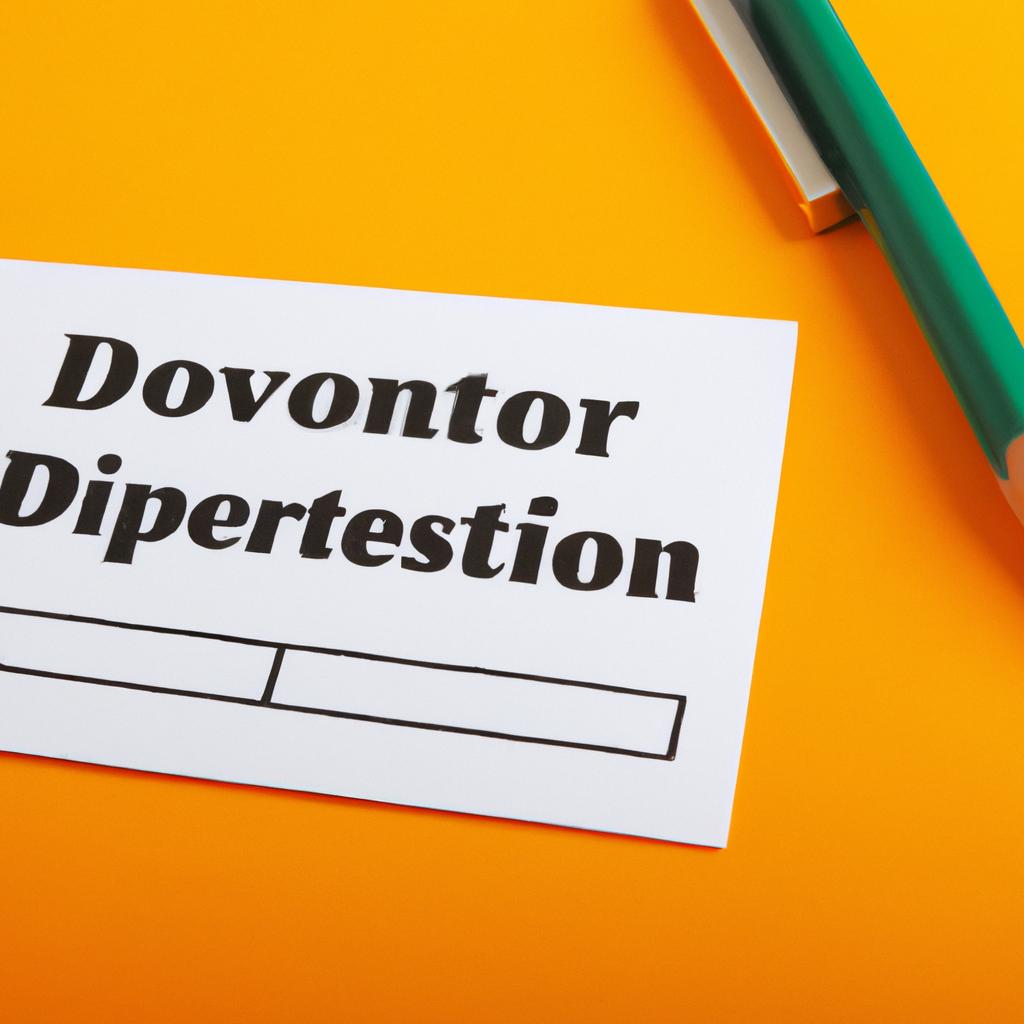In the realm of medical ethics and patient rights, there exists a scenario where a doctor chooses not to provide medical care to a patient. This phenomenon raises a number of legal and ethical considerations, prompting the need to examine the complexities of such a situation. Join us as we delve into the intricacies of what it is called when a doctor refuses to see a patient, exploring the implications and legal nuances surrounding this contentious issue. Welcome to Morgan Legal Group, where we offer expertise in estate planning, probate, elder law, wills, and trusts in the bustling metropolis of New York City.
– Understanding the Legal Implications of Doctor Refusal to See a Patient
In the medical field, **when a doctor refuses to see a patient,** it is known as patient abandonment. This occurs when a physician terminates the doctor-patient relationship without a valid reason or proper notification. Patient abandonment is considered a serious ethical violation and can have legal consequences.
<p>Patients have the right to receive medical care and treatment from healthcare providers. **When a doctor refuses to see a patient,** it can lead to potential legal implications such as medical malpractice, negligence, and breach of contract. It is important for doctors to adhere to ethical standards and provide proper notification to patients if they are unable to continue treating them.</p>
– Exploring the Ethical Considerations in Physician-Patient Relationships
When a doctor refuses to see a patient, it is known as patient dismissal. This decision is not taken lightly and is usually made after careful consideration of several factors. Patient dismissal may occur for various reasons, including but not limited to:
- Non-compliance with treatment plans
- Repeated missed appointments
- Behavior that disrupts the practice
- Violation of practice policies
In these situations, it is crucial for the physician to follow ethical guidelines and ensure that the patient is provided with appropriate care even after dismissal. Patients have the right to seek medical help, and physicians have a duty to ensure continuity of care while also maintaining boundaries in the physician-patient relationship. It is essential to handle patient dismissal with sensitivity and professionalism to uphold the ethical standards of the medical profession.
| Reason for Dismissal | Impact |
|---|---|
| Non-compliance with treatment plans | Lack of effectiveness in providing care |
| Repeated missed appointments | Disruption of scheduling for other patients |
| Behavior that disrupts the practice | Hostile environment for staff and other patients |
| Violation of practice policies | Compromise of ethical standards |

– Navigating Options for Patients Facing Doctor Refusal
When a doctor refuses to see a patient, it can be a frustrating and concerning situation. This refusal may stem from various reasons, such as scheduling conflicts, lack of expertise in the specific medical issue, or personal conflicts between the doctor and the patient. Regardless of the reason, it is essential for patients to understand their options and navigate this challenging scenario with caution and knowledge.
Patients facing doctor refusal can explore the following options:
- Seek a Second Opinion: Patients can consider seeking a second opinion from another healthcare provider to ensure they receive the necessary medical attention.
- File a Complaint: Patients have the right to file a complaint with the medical board or relevant regulatory body if they believe the doctor’s refusal is unjust or discriminatory.
- Explore Alternative Healthcare Providers: Patients can research and consider alternative healthcare providers who may be willing to see them and provide the necessary medical care.

– Ensuring Access to Medical Care in Cases of Doctor Rejection
In situations where a doctor refuses to see a patient, it is commonly referred to as “patient rejection.” This term encompasses instances where a healthcare provider declines to provide medical care to a particular individual for various reasons. Patient rejection can occur for reasons such as conflicts of interest, lack of expertise in a specific medical condition, or ethical concerns.
When faced with patient rejection, it is important for individuals to understand their rights and explore alternative options to ensure access to necessary medical care. Seeking assistance from a legal professional specializing in healthcare law can help navigate these complex situations and advocate for the patient’s rights. By being informed and proactive, individuals can overcome doctor rejection and receive the medical care they need.
Q&A
Q: What is it called when a doctor refuses to see a patient?
A: The act of a doctor refusing to see a patient is commonly referred to as “patient dumping” or “patient refusal”.
Q: Why would a doctor refuse to see a patient?
A: There are several reasons why a doctor may refuse to see a patient, including scheduling conflicts, lack of expertise in a particular medical issue, ethical concerns, or personal safety concerns.
Q: Is it legal for a doctor to refuse to see a patient?
A: It is generally legal for a doctor to refuse to see a patient, as long as they do not violate any anti-discrimination laws or ethical guidelines set forth by their medical board.
Q: What can a patient do if a doctor refuses to see them?
A: If a doctor refuses to see a patient, the patient may need to seek medical care from another healthcare provider. It is important for patients to advocate for their own health and seek out a doctor who is willing to provide them with the care they need.
Future Outlook
In conclusion, when a doctor refuses to see a patient, it can be a frustrating and confusing experience for both parties involved. Whether it is due to a conflict of interest, ethical concerns, or other reasons, it is important for patients to understand their rights and seek alternative care if necessary. Remember, communication is key in these situations and finding a healthcare provider who is a good fit for you is essential for your well-being. Thank you for reading and we hope you have a positive and productive healthcare experience moving forward.
 What Is It Called When a Doctor Refuses to See a Patient?
What Is It Called When a Doctor Refuses to See a Patient?
Healthcare is a fundamental human right, and access to medical services is crucial for maintaining good health. However, there may come a time when a doctor refuses to see a patient, leaving them feeling confused, frustrated, and at a loss for what to do next. So, what exactly is it called when a doctor refuses to see a patient? Let’s explore this topic in detail.
The practice of a doctor refusing to see a patient is commonly known as “patient refusal” or “patient abandonment.” It is a situation where a doctor chooses not to provide medical care or treatment to a patient who has previously sought their services. This can occur at any point during a patient’s medical journey – from an initial consultation to an ongoing treatment plan.
While a doctor’s primary obligation is to provide medical care to their patients, there are certain situations where they may refuse to see a patient. These may include issues related to payment and insurance, ethical concerns, and legal reasons. Let’s take a closer look at these reasons in detail.
Reasons for Patient Refusal:
1. Non-Payment:
In some cases, a doctor may refuse to see a patient if they have not paid their medical bills. While this may seem unfair to the patient, it is important to remember that doctors also have bills to pay, and their staff and equipment need to be compensated for their services. As healthcare is a business, doctors rely on receiving payments for their services to continue providing care to their patients.
2. Insurance Issues:
Insurance issues can also lead to patient refusal. If a patient’s insurance does not cover certain treatments or they do not have any insurance coverage at all, the doctor may be unable to see them. This can be a significant issue for patients with chronic conditions who require frequent medical care.
3. Ethical Concerns:
There may be situations where a doctor is ethically or morally conflicted about treating a particular patient. For example, if a doctor is uncomfortable with a patient’s lifestyle choices or beliefs, they may refuse to see them. In such cases, doctors may feel that providing treatment would go against their own values and beliefs.
4. Legal Reasons:
There are instances where a doctor may refuse to see a patient due to legal issues. For example, if a patient has threatened to sue the doctor or has engaged in aggressive behavior towards them or their staff, the doctor may choose to terminate the doctor-patient relationship. In such cases, the doctor is protecting themselves and their practice from potential legal action.
Implications of Patient Refusal:
Patient refusal can have several implications for both the patient and the doctor. Let’s discuss some of these implications in detail:
1. Delayed Treatment:
When a doctor refuses to see a patient, it can result in delayed treatment. This can have serious consequences, especially for patients with chronic conditions that require regular medical attention. Delayed treatment can lead to further health complications, and in some cases, even fatalities.
2. Deteriorating Patient-Doctor Relationship:
Patient refusal can also put a strain on the patient-doctor relationship. It can cause the patient to lose trust in their doctor, which can result in them seeking medical care elsewhere. Additionally, it can also lead to negative reviews and damage the doctor’s reputation.
3. Legal Action:
In some situations, patient refusal can result in legal action. If a patient feels that they have been refused care for unjust reasons, they may take legal action against the doctor. This can be a costly and time-consuming process for both parties.
Tips to Avoid Patient Refusal:
Patients can take certain steps to avoid the possibility of being refused medical care, including:
1. Clear Understanding of Insurance Coverage:
Before seeking medical treatment, patients should have a clear understanding of their insurance coverage. This will help them avoid any unexpected out-of-pocket expenses that may result in non-payment and subsequent patient refusal.
2. Transparent Communication:
Clear and transparent communication is key to maintaining a good patient-doctor relationship. If there are any potential conflicts or concerns, patients should discuss them with their doctor to find a mutually agreeable solution.
3. Mutual Respect:
Mutual respect between the patient and doctor is essential for a healthy patient-doctor relationship. Patients should respect their doctor’s decisions, and doctors should treat their patients with empathy and compassion.
In conclusion, patient refusal is a complex issue, and there may be various reasons why a doctor chooses not to see a patient. It is crucial for both patients and doctors to understand the implications of this practice and work together to find solutions that benefit all parties involved. By maintaining open and honest communication, mutual respect, and a clear understanding of insurance coverage, patients and doctors can avoid the possibility of patient refusal.





